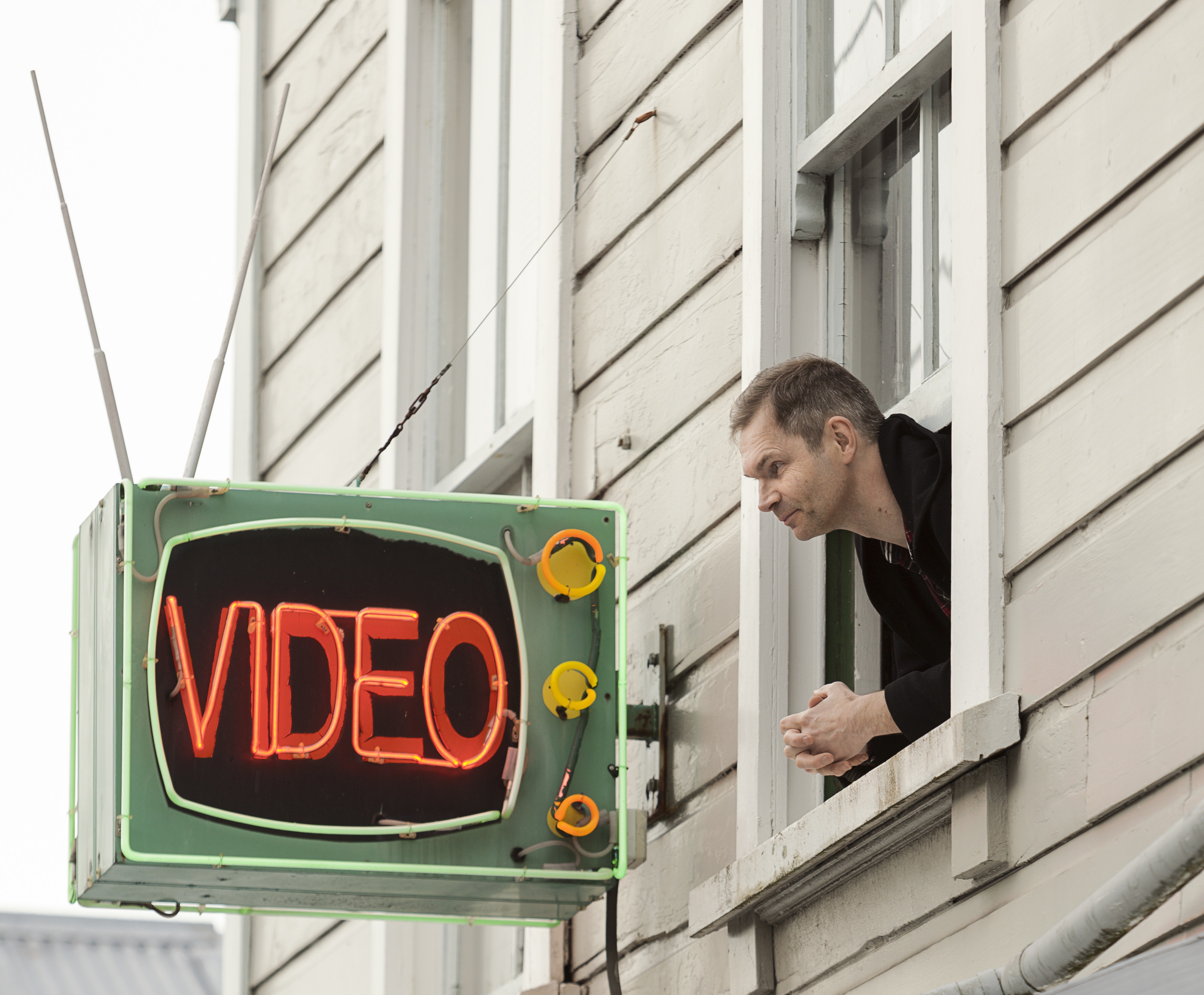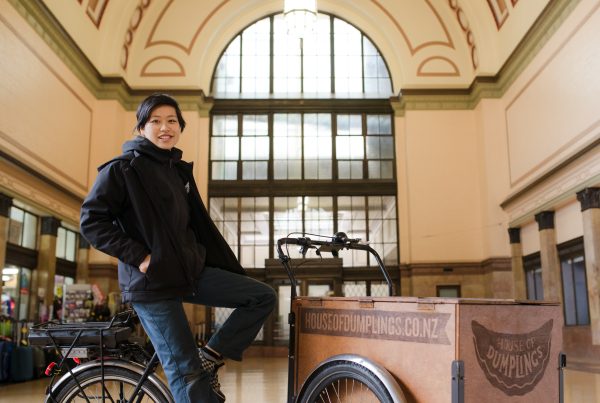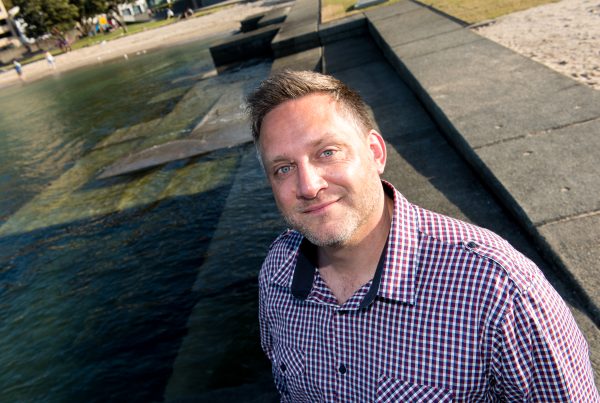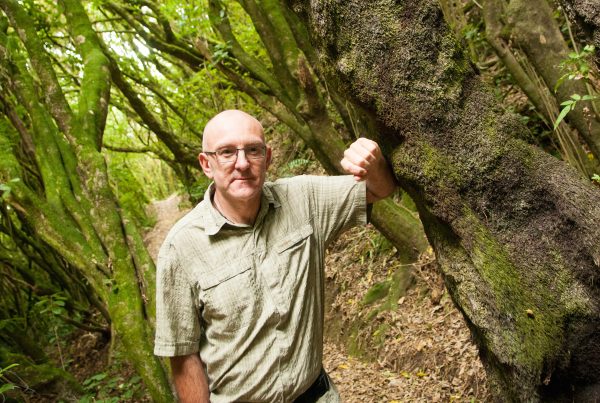
When we talk about ‘the coolest little capital’, or all that ‘Cuba Quarter’ blather, what we are acknowledging is the work of a handful of business people and a historical fluke that saw the land prices around Te Aro held artificially low for a couple of decades. If the Karo Drive ‘bypass’ (what exactly would it ‘pass by’? I’ve always wondered) had gone ahead in the 1970s as originally planned, then Upper Cuba and Willis Street would have been razed and rebuilt in that decade now synonymous with lousy architecture and pathologically insane town planners. But the road was delayed and the Te Aro flat was allowed to devolve into the slightly ramshackle collation of shops, offices and storefronts we have come to love.
And so it was that some interesting and genuinely creative people were able to take a punt on starting businesses, a coterie of musicians, actors, writers and fabulous assorted scruffs could afford to live ‘inner city’, and the ‘creative capital’ that the council and its agencies like to trumpet was born: not because of ‘progress’, but because ‘progress’ was held up for a few decades.
Aro Street, across this fertile but impolite plain, remained slightly cut off from the rest of the city, and gathered around itself a reputation for radicalism and a very faint whiff of outlawdom.
You’d be a fool to try to replicate that perfect storm, but it happened, and it got us to exactly where we are today: publishing a magazine celebrating all that is best about Wellington, out of an affordable office roughly halfway between Cuba Street and the entrance to the Aro Valley, writing about the founder of one of the mostemblematic of those trailblazing businesses.
Andrew Armitage’s Aro Street Video store is a lynchpin of the Wellington city in which many of us live. It has the unlikeliest, most serendipitous and humblest of beginnings, and yet it has outlasted nearly every other international chain video store in town.
“I’d been 
“I think I took my inspiration from the Aro Street Café, because even then that was an iconic business. It had been around since the 1970s, and it was proof that it could be done up here. In fact, that’s why I called the shop Aro Street Video, and not some clever movie pun name. Even then ‘Aro Street’ was what people would call a ‘brand’. It came with its own values attached, and I wanted to be identified with that.”
I like this, and I can hear myself grunting my agreement on my recording. Of all the city suburbs, Aro Street is the one that has retained its old character the most. It’s still a place you reach deliberately, or not at all. The rest of the city has not permeated it. Aro Street is a tidier, shinier place than it once was, but it is still identifiably a separate village within the city.
“Nothing really worked except the lights. The staff would have to walk 50 yards up the road to our house if they wanted to use the toilet. I organised buying trips to Auckland, where the suppliers were. I knew that the movies I wanted were there, because they all had to buy a load of stuff they didn’t want along with the Steven Seagals and the rest. It was my favourite part of setting up; getting on a plane, picking up a hire car, driving out to these warehouses in Henderson, and there’d be boxes of VHSs, just sitting there with no one really knowing what they were.”
At which point we can lay to rest a myth about Aro Street Video.
“Of course we always stocked the good mainstream stuff as well. The day we opened we had Tom Hanks and Beaches and Schwarzenegger on the shelves. It’s just that we had the more off-beat and hard-to-find stuff as well, that no one else had.”
I’m glad Andrew brought it up. Even today, many people think that Aro Street Video only deals in the arthouse. Kind of ironic, since I’m conducting this interview with an entire rack of Bruce Willis glaring down at me.
“We opened in 1989 with about 170 VHS tapes. A lot of people said we were mad, because it was the same month as TV3 started, and they figured that with three TV channels there wouldn’t be a market for video shops… ”
You don’t need me to tell you how hard we are both laughing here on my recording. But it does bring us neatly around to the present day:
“It’s hilariously tough at times, but we’re not going away… ”
The Internet has taken an irreplaceable chunk of business, and Aro Street Video has an ongoing problem with New Zealand’s censorship office. Put simply, every film available to buy or rent in New Zealand must be rated and that costs up to $1,000 per movie. Often Aro Street Video is importing films that no other outlet will stock — that’s why the business exists — and that means there is no one to share the cost of the rating.
The old classification and importation model seems ludicrously outdated, now that anyone can download anything and Sky TV can show pretty much whatever they want. The whole thorny business of censorship needs a complete rethink for many reasons, but the fact that we are allowing bureaucracy to wreck New Zealand businesses while we wait for the politicians to find the will to have that conversation is utterly unforgivable.
There will be people who read my little rant here (and it is mine, not Andrew’s) and say, “So what? It’s an outdated business model. People can find what they want on the Internet.”
But those people are wrong.
Six months ago in these pages I talked to Tilly Lloyd of Unity Books. Tilly surprised me when she said that although the Internet took away business, after an initial bad few years business was now recovering. Andrew has found the same. Business isn’t what it was ten years ago, but the free-fall is over. Andrew and Tilly agree on the reason why. Call it curatorship. You don’t walk into Aro Street Video, or Unity Books, or Slowboat Records, looking for some generic way to waste a few hours. You go looking for something good, but perhaps not yet known to you. And for that you still need people. We might pay a few dollars, but we walk away with a guarantee of satisfaction, and an irreducible memory of human contact.
So I’m musing on all that, and wondering how to finish this piece off on a celebratory note. Because we are here to mark the continued flourishing of a business that has succeeded where multi-nationals have failed. And then I hear myself asking Andrew about the new customers, the ones who turn up for the first time. He laughs.
“It’s amazing,” he says. “We get kids come in here who might never have been in a video shop before, and their eyes just light up. I mean, when we started out, every suburb, every small town, they all had a couple of places you could go and hire a decent movie for the night. Now, we’re filling a void left by the big companies giving up. We’re couriering films all over the country. There are people literally from Kaitaia to Bluff who are customers of ours. Some of them ex-Wellingtonians, and others we’ve never met, they email us and phone us up, asking for a recommendation. And we bag up films and send them out. The next week the films are back, and they’re phoning up or on the website looking for their next one.”
And sure enough, as we walk downstairs the assistant is doing just that: putting good films in courier bags ready to be dispatched.
I ask Andrew about the possibility of combining the worlds, by opening a site to stream movies direct. He says it would be possible, but that the cost of setting up would require an investor. With the Aro Street Video name to trade under, you have to wonder whether one of the famously movie-loving entrepreneurs in Wellington might be willing to come on board.
Just as I’m getting ready to leave, Andrew says to me, “You know, we started out talking about records and music. Two of my boyhood heroes died last month — Rik Mayall, of course, but also Casey Kasem… I was out there in my parents’ house in Lower Hutt, just a kid, and I’d listen to Casey Kasem and the American Top 40. And there’d be this music you wouldn’t hear anywhere else. Not the Top 10, but the hidden gems, the ones that New Zealand radio would never play. Really great music, but not well enough known. That always made a big impression on me.” We both look around the shelves of the shop. It doesn’t need to be said. Andrew laughs. “Yeah… ”





